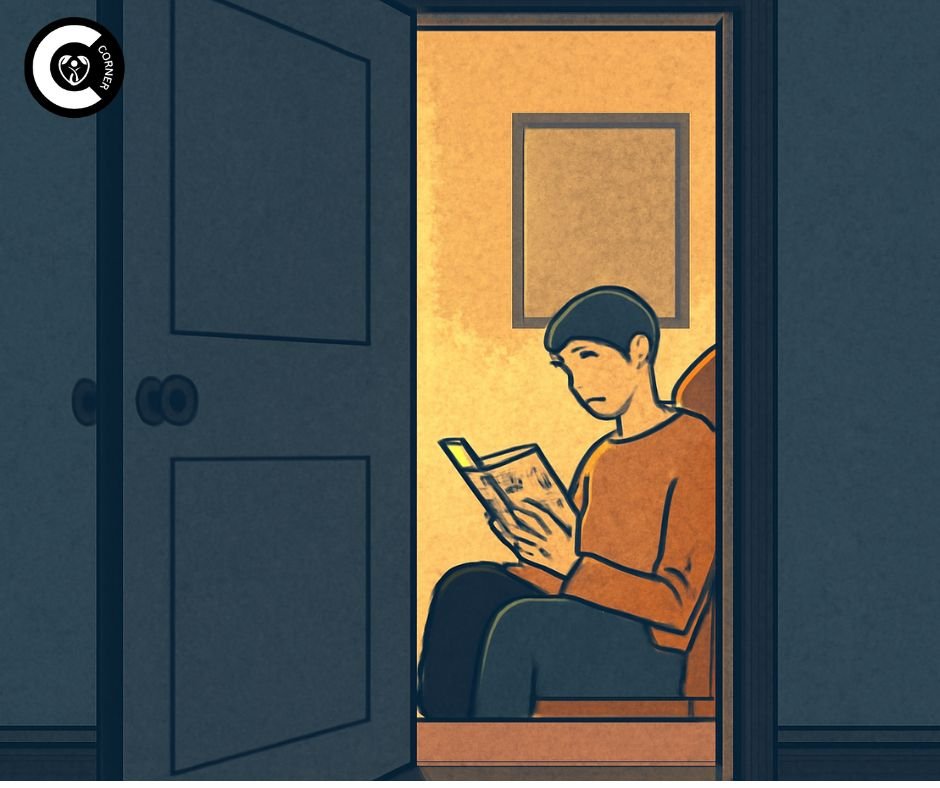Everyone has fallen in love at some point in their lives. It’s a flurry of feelings that changes everything. However, for the compassionate person (HSP), who comprises 15–20% of the population, this journey is not just bigger; it’s also very different. Their finely tuned nervous system processes the world with remarkable depth and intensity. This turns every aspect of romantic relationships into a profoundly rich, often overwhelming, symphony of feeling. If you identify as a highly sensitive person, understanding these unique dynamics is essential. It helps you navigate the beautiful yet sometimes turbulent waters of falling in love. This article explores eight fundamental truths that shape the love life of a sensitive person. It provides you with support, understanding, and guidance on embracing the depth you bring to passionate love.
Truth 1: Your Emotional Intensity Isn’t Drama; It’s Your Authentic Depth
Experiencing Falling in Love with Overwhelming Emotional Intensity
For an HSP, falling in love isn’t a slight wave; it’s a big one. The rush of love, attraction, and vulnerability hits with a power that can’t be matched. The HSP brain’s innate ability to process emotional stimuli more deeply contributes to this emotional intensity. The surge of dopamine feels excellent, the need for connection hurts deeply, and the dread of being rejected can be so intense that it stops you in your tracks.
This isn’t “too much” or “overly dramatic.” It’s the real, unfiltered sense of falling in love with a neural system that is wired to feel deeply. This depth can bring you a great deal of joy and connection, but it can also make the lows feel particularly profound. Your emotional intensity isn’t a flaw; it’s part of being highly sensitive. Recognizing this truth helps cultivate self-compassion and attracts partners who value your profound depth of feeling.
Truth 2: Casual Flings Feel Empty; You Crave Soul-Level Bond
Highly Sensitive People Seek Deep Connection, Not Surface Spark
Sensitive people often feel depleted and quite unhappy after using dating apps and having small talk. The main desire isn’t just for company; it’s for a deep connection—a meeting of minds, hearts, and souls. HSPs can immediately sense if someone is genuine, and they seek partners who are willing to be vulnerable, share essential ideals, and engage in deep conversations about life. For them, falling in love is deeply connected to a profound sense of being fully seen, understood, and welcomed.
They want partners who understand subtleties, depth, and being honest about their feelings. HSPs may take longer to commit because they desire a deep connection. Still, when they do, it’s to establish something significant and lasting in their romantic life, prioritizing quality and resonance over fleeting chemistry.
Truth 3: Overstimulation is a Stealth Relationship Saboteur
Navigating Sensory and Emotional Overload in Romantic Relationships
For a very sensitive individual, the thrill of new love, constant texting, long dates, meeting friends, and getting used to new places—can easily become too much. Their nervous system absorbs everything, overwhelming environments, emotional exchanges, and even subtle partner cues. This sensory and emotional barrage can quickly lead to exhaustion. This constant barrage of sights, sounds, and feelings can rapidly leave you feeling tired, irritable, anxious, and overwhelmed.
Falling in love is exciting on its own, but adding outside stress might push an HSP too far. This isn’t a lack of curiosity; it’s too much information for the brain to handle. It’s essential to be aware of this inclination. HSPs need to take command of their energy, make it clear that they require some quiet time to recharge (“It’s not about you, I need some quiet time”), and find partners who understand that taking a break is essential self-care, not rejection, in their romantic relationships.
Also Read: Learn About Vasomotor Symptoms
Truth 4: Personal Space Isn’t Rejection; It’s Your Lifeline
The Critical Role of Personal Space for Highly Sensitive Love
For a highly sensitive individual in love, personal space is like air that can’t be replaced. Being with someone all the time, especially someone you love, might feel like too much. Highly sensitive people need ample solitude to decompress, integrate the overwhelming emotions of new love, and replenish their energy. This personal space is essential for maintaining emotional balance and self-connection.. Partners often mistake this desire for personal space for being cold, uninterested, or even rejecting. But it’s the other way around.
Being alone allows the HSP to process the deep feelings of the relationship and return to their spouse feeling calm, present, and ready to be their best self. A spouse who not only accepts but also actively supports and respects an HSP’s need for restorative solitude and personal space, without taking it personally, is essential for a healthy love life.
Truth 5: Your Deep Empathy is a Double-Edged Sword
Feeling Your Partner’s Emotions: The Gift and Burden of High Sensitivity
People are aware that HSPs are highly empathetic. This implies that when they fall in love, they don’t simply feel their own strong emotions; they also really understand how their spouse feels. They can sense subtle changes in mood, silent worries, and hidden tensions without even being aware of them. This gives romantic partnerships a significant opportunity to be in sync with each other and offer mutual support. However, this level of feeling may be difficult to manage. It can be challenging to distinguish between how they feel and how their partner feels.
They could take on their partner’s stress, unhappiness, or rage as their own, which can make them emotionally drained and make it hard to have good boundaries. To manage this deep empathy, you need to learn to recognize whose feelings are whose, practice compassionate detachment (“I feel you’re upset, but this is your feeling to manage”), and make sure that your own needs aren’t put on hold because of your partner’s emotional world in your love life.
Truth 6: You Experience Love with Unparalleled Depth and Nuance
The Profound Beauty of Passionate Love Through a Sensitive Lens
There are actual problems that come with being an HSP, but the benefits of falling in love are amazing. They have intense love that is fuller and more textured than what most people could see. They appreciate the little things, such as the way their partner’s touch feels warm, the meaning behind a glance, and the stillness they share that says so much. Also they love beauty, which means they value small, significant gestures and create romantic experiences that truly touch them.
This ability to delve deep leads to romantic partnerships that are characterized by profound closeness, heartfelt admiration, and a unique, soulful, and passionate love. They make connections that feel like they will last forever and are essential. They typically show their passion through kind gestures, deep listening, and making places feel secure and beautiful. This capacity to connect and appreciate on such a deep level makes falling in love a uniquely gratifying experience for both the HSP and their lucky partner, who gets to experience this depth.,
Truth 7: Conflict Feels Like a High-Stakes Emotional Battlefield
Why Arguments Are Especially Exhausting for Sensitive People in Love
When you fall in love, you have to deal with disagreements. Conflict isn’t simply destructive for the highly sensitive individual; it’s also physically and emotionally draining. A lot of stress hormones can be released by loud voices, harsh tones, feeling like you’re being criticized, or even just the intense emotional energy of an unresolved conflict. The emotional intensity reaches a fever pitch, making it almost impossible to think clearly or speak in a quiet voice.
During disputes, HSPs may cry easily, shut down, or become overwhelmed. They feel the break in connection quite strongly and are scared of what can happen if it lasts. It takes a lot longer to get over a fight, and you need a lot of quiet time and reassurance. In romantic relationships, partners need to learn how to handle conflict healthily. They need to be aware of how easily they become upset, ensure that communication is calm and courteous, give each other space to calm down, and reassure each other that the connection is still strong, even when they disagree.
Truth 8: Your Sensitivity Creates Uniquely Powerful, Enduring Bonds
Building Deep Connection Through Vulnerability and Understanding
Even if they are complicated, extremely sensitive people contribute unique gifts to romantic relationships that make them stronger and deeper. Their ability to deeply empathize, attune to, and care for others makes their partners feel emotionally very safe. Their love of depth and purpose fosters partnerships that are characterized by honesty and shared vulnerability. When an HSP knows that their needs are being met and they feel safe, understood, and respected (especially when it comes to their need for personal space and controlling their emotions), they make great partners who are loyal, devoted, and insightful.
Their intense love is not just a passing thing; they care about it and work hard to keep it alive. To fall in love with an HSP and develop a life together, you need to understand how they are wired. The payoff is a love life full of deep intimacy, mutual understanding, and a connection that goes to the very heart of both partners’ beings.
Conclusion: Accepting Your Sensitive Heart in the World of Love
As a compassionate person, falling in love is a journey marked by magnificent highs of emotional intensity and intense love, as well as lows where you must be cautious about being overstimulated and needing your own space. It’s not about making sensitivity seem like a disease; it’s about recognizing how important it is in your love life to understand these eight key aspects, from wanting to connect deeply to the particular problems that arise in conflict and the strength of your genuine empathy.
Your sensitivity doesn’t keep you from loving; it’s the way you see the most beautiful depths and subtleties of love. You can turn your problems into strengths by accepting your requirements, openly stating them, and seeking partners who appreciate the depth of your contributions. Your ability to feel deeply is what makes it possible to form romantic connections that are incredibly real, strong, and soul-stirring. Your sensitive heart is your best advantage in the lovely, complicated journey of falling in love.




